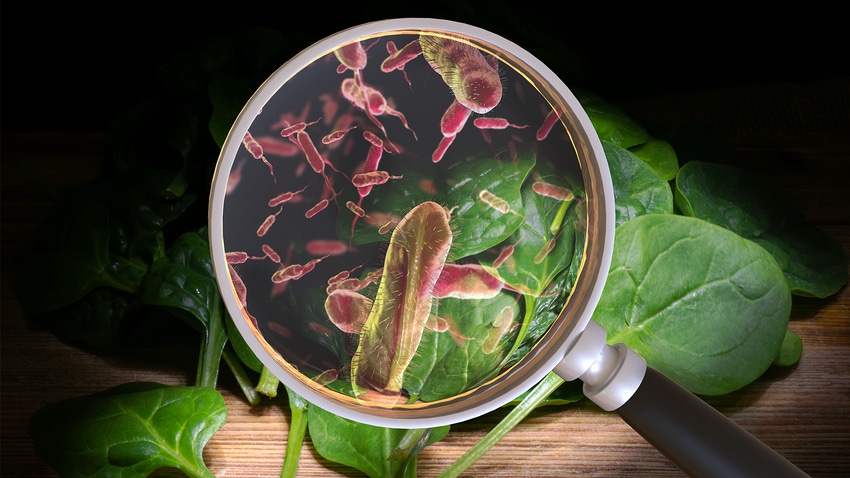FDA issues recalls for mung bean sprouts, spinach for possible listeria contamination
Two recalls for listeria highlight ongoing food safety challenges, while recent investigations like the salmonella onion case showcase advancements in tracking and preventing outbreaks.

At a Glance
- Mung bean sprouts and spinach are recalled due to the presence of listeria, prompting renewed concerns about food safety.
- FDA responds to the recalls, highlighting the successful investigation of a previous salmonella outbreak linked to onions.
- Successful investigations demonstrate the effectiveness of tools like Whole Genome Sequencing and regulations like FSMA 204.
Just as an outbreak investigation of salmonella in onions is completed, two recalls have been initiated for Listeria monocytogenes following random sampling by state agencies. Mung bean sprouts in 12-ounce packages under the Chang Farm brand as Nature’s Wonder Premium Bean Sprouts have a sell-by date of Dec. 13. A random sample, collected and analyzed by the Virginia Department of Agriculture and Consumer Services, tested positive for the pathogen. This is the second time this year that random sampling has led to recalls of the company’s mung bean sprouts.
Fresh Express issued a voluntary recall of 8-ounce bagged spinach under the Fresh Express brand with a use-by date of Dec. 15 and 9-ounce bagged spinach under the Publix brand name with a use-by date of Dec. 14. Routine sampling conducted by the Florida Department of Agriculture yielded a positive result for Listeria monocytogenes taken from a single, randomly selected bag of spinach. A recall was issued immediately. No illnesses have been reported as of Dec. 19.
Previous cases offer perspective. In September 2023, FDA issued guidance for the sprouts industry, saying that between 1996 and 2020, 52 outbreaks of foodborne illness were reported, which resulted in 2,700 cases, 200 hospitalizations and three deaths. “Sprouts represent a distinct food safety concern because the conditions under which sprouts are produced (i.e., temperature, water activity, pH and available nutrients) are also ideal for the growth of pathogens, if present.”
The last serious outbreak involving spinach occurred in the fall of 2021. Josie’s Organics spinach was contaminated with E. coli 0157:H7. In all, 15 people became ill and four required hospitalization. There were no deaths.
A sample of the spinach was collected from the home of someone who had become ill. Whole Genome Sequencing (WGS) matched the strain of E. coli O157:H7 in the sample to the outbreak strain. This led FDA to investigate three farms in California and Oregon that were part of the supply chain. Because the fields were fallow and production was not being conducted, FDA had difficulty finding the source of contamination.
Still, FDA investigators found that one location that processes products sometimes uses products from multiple growers in one production run. Though the practice of combining products from different sources (co-mingling) is common, it makes traceback investigations challenging. The new traceability rule, FSMA 204, which goes into effect in January 2026, will require processors of high-risk items such as spinach to keep additional information to eliminate the confusion caused by co-mingling.
FDA’s recent investigation of onions contaminated by salmonella was successful. A recall of diced onions processed by Gills Onions was initiated on Oct. 23, 2023. Besides diced red onions and diced yellow onions, the recall included mixes of mirepoix (onions, celery and carrots) and diced onions and celery. By the time the last illness onset was reported, 80 people had become ill, 18 were hospitalized and one person died. On Dec. 4, CDC announced the end of the outbreak.
FDA traced the contamination to the farm that supplied onions to Gills Onions. Investigators collected multiple water, environmental and product samples from the farm. Six of the samples, three water and three environmental, were positive for salmonella spp. WGS analysis confirmed that the strain of salmonella found in isolates associated with three of the samples matched the same strain of salmonella causing illnesses in this outbreak. Additional salmonella isolates from the samples were also detected.
A 2021 outbreak of whole red, yellow and white whole onions imported from Mexico and contaminated with salmonella oranienburg was more challenging. CDC reported 1,040 illnesses, 260 hospitalizations and no deaths. The whole onions were sold by several produce companies. Further, the onions were used in HelloFresh and EveryPlate meal kits.
In this case, the growing season was finished before the outbreak ended, so FDA could not collect onion samples. FDA initiated domestic investigations of companies that imported onions from Chihuahua, Mexico to determine if they were in compliance with the Foreign Supplier Verification Program (FSVP). FDA intended to use enhanced screening and sampling during the 2022 growing season.
While using good agricultural practices minimizes the risk of contamination by pathogens, the lessons learned from each investigation are important in enhancing food safety. Though it may seem that food is becoming less safe as outbreaks tend to repeat and news outlets report, science and investigations have improved. WGS can quickly link a sample to the exact strain of illness and back to the farm and processing facility. Regulatory improvements, such as FSMA 204, FSVP and specific industry guidance, offer tools to reduce the risk of contamination. Lastly, random sampling and testing by state agencies often catches a pathogen before it has the chance of causing an outbreak.
About the Author(s)
You May Also Like






